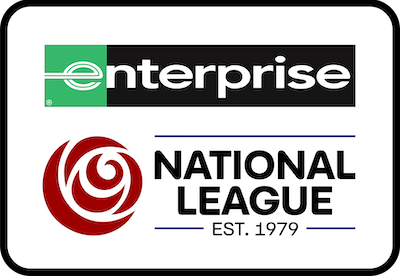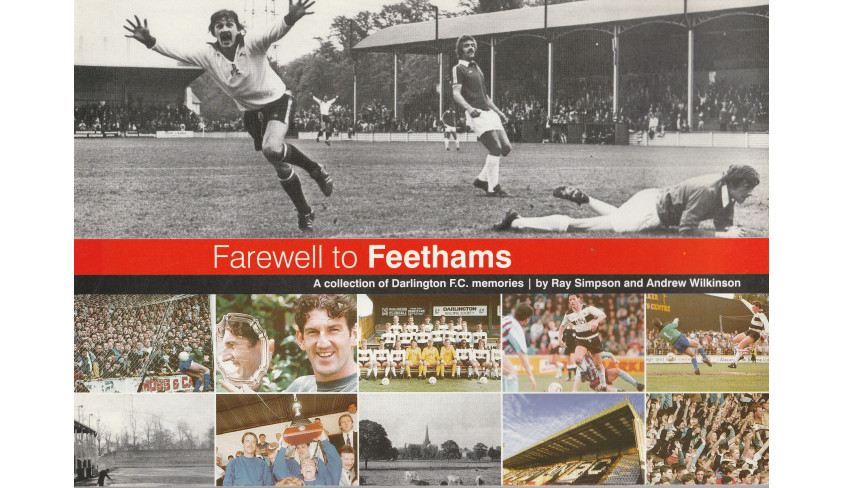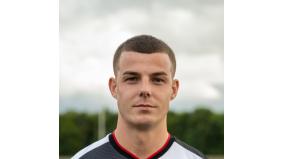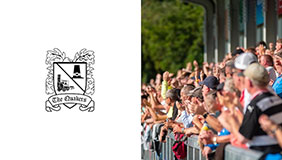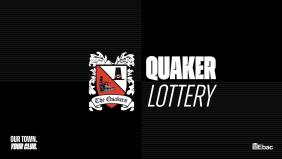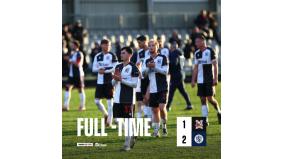Memories of a crowd favourite
Over the last few months, we've published extracts from the Farewell to Feethams book, which was published in 2002 when we were preparing to leave Feethams.
Today, Colin Sinclair recalls his time at the club between 1971 and 1976, when he made 223 appearances and scored 65 goals. (And if you can put us in touch with him, all the better!)
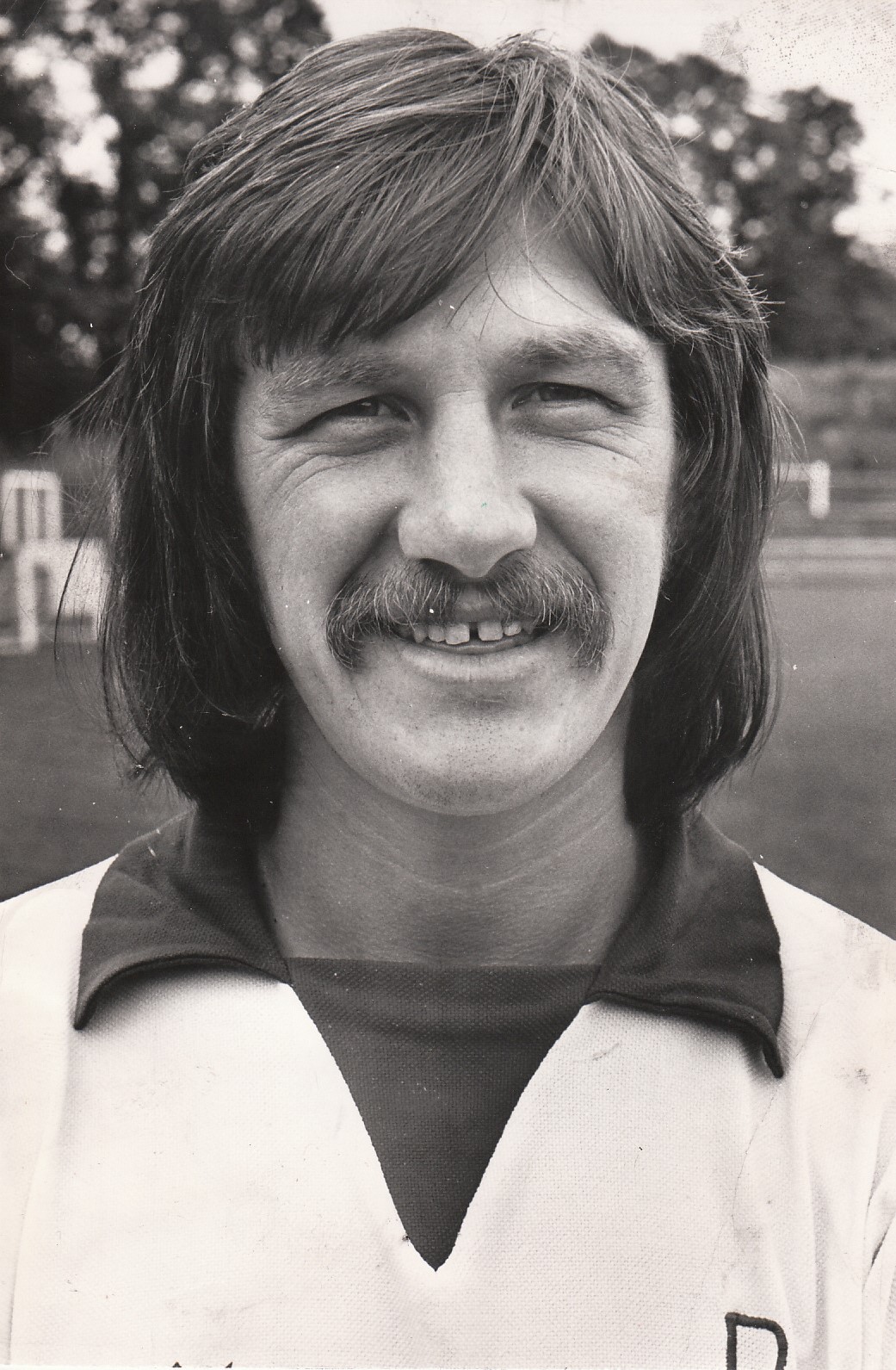
Win £1000 in our Christmas draw:
https://darlingtonfc.co.uk/news/win-1000-in-the-darlington-fc-christmas-draw
The high-pitched tone of Barry Davies was unmistakable. It was October 18th1975, and the BBC man, who later provided the commentary when Darlington visited Altrincham in the FA Cup in November 2001, was completing his round up on Match of the Day.
Torquay played on a Saturday evening in those days, and Davies reported: "There's one Division Four result to bring you: Torquay United 2 Darlington 4 – and Sinclair scored all four!”
His voice rose to almost to glass-shattering pitch as he completed the sentence, and no doubt all over Darlington, fans danced in the living rooms.
Having won the first three games of the season to go top, Quakers had failed to score in their next seven matches until Colin’s night to remember.
"They were quality goals,” he recalled. “but for the first one I brought the ball down with my hand, Another came from a throw in we had worked on and I turned and hit the ball into the top corner. We stayed in Torquay because we were to play Swansea two days later.
“We were in a nightclub that Saturday and Match Of The Day was on in the club, I remember little else, except that Clive Nattress and I ended up in Exeter!"
The Torquay blitz was Colin's only hat-trick. He loved Darlington with a passion that still exists, and is an occasional visitor, still referring to the team as “we”.
“It was my favourite club in my career. A family club, with no cliques, trainer Dickie Deacon was a great character, and if it had been up to me I wouldn't have left.”
A natural goalscorer, Colin arrived for a small fee from Raith Rovers. How small depends on whether you believe the accounts, or Colin's version. The fee was either around £5,000 - or £3,000.
"The deal was done at Newcastle Railway station, and there were a few brown envelopes handed about. One came my way with £500 in it," he said.
He had made a name for himself at Raith, scoring against Rangers on his debut, then Celtic.
A change of manager led to his departure. "He left me out, though I was top scorer. Darlington chairman George Tait had connections with Ronnie Simpson, a big name in Scottish football. Darlington came in for me and I went."
Len Richley was Quakers manager, though he didn't last long, and Colin was to play under eight bosses at Feethams.
At first the young striker struggled and despite making his debut on the opening day of the 1971-72 season (a 3-0 defeat at Southend) he was in and out of the side and didn't score until February.
"There was time in the Scottish First Division, but not in the English Fourth, where the play was hard and fast. But I clicked, and from then on I loved every minute.”
After barren months he scored twice in one game, against Aldershot, and finished the season with eight goals. The goals flowed, his best tally being 22 in the season he sunk Torquay. Towards the end of the campaign he scored in seven successive league games.
“1 remember scoring against Mansfield in a 1-0 win. The opposing manager used to pick a Man of the Match. He gave it to me, saying that I never did much, but always scored against them.
“One of my favourite goals was against Bradford. They had a full back called Ces Podd, a hero with their fans. I kicked lumps out of him and got some stick from the terraces.
“A corner came over and it stotted up in front of me, so I lifted the ball over a defender’s head and volleyed it into the top corner where it stuck in the stanchion. The goal was featured on television.”
Colin also recalls a game at Hartlepool where Quakers trailed 2-0, only to score three times, Colin heading the winner – eventually!
“John Hope was Pool's keeper, and in the first half I was unmarked and tried to be smart and let the ball run through my legs before flicking it into the net. But I missed, and got a rollicking from manager Peter Madden at half time, so you can imagine how pleased I was when I scored the winner
"We had a good record against Pool. Their manager was Len Ashurst and I later played for him at Newport. I kept reminding him of our wins over Pool – maybe that's why he got rid of me."
Darlington struggled for most of Colin's time. Chairman Tait was quick to wield the axe and none of the managers had time to produce a winning side. Colin recalls with a shudder the feeling of helplessness when the Football League meetings took place which would determine whether Quakers were re-elected.
He considers Dick Connor the best Darlington manager he played under. "He was strict, but fair, and you wanted to play for him."
He signed big Bill Atkins, and the wily striker brought Colin on no end. “I liked playing under Billy Horner too," said Colin. "Don Burluraux was class and a good mate, so was Clive Nattress.
“But I felt I would score loads of goals if I was playing for a better side. My ambition was to play in the First Division, and my only regret was that when Sheffield United (managed by Darlington old boy Ken Furphy) offered £25,000 plus John Hope for me, Tait turned it down.”
Colin scored in the famous penalty shootout in 1975 at Sheffield Wednesday. Quakers beat Luton Town in the next round of the League Cup, before bowing out 3-0 at West Ham.
“We were robbed. As I recall, Clive Nattress got to the bye line and pulled the ball back for Eric Young to score, but the linesman flagged for offside. It couldn't have been, and we were fuming.”
Colin was at Boro’s Riverside Stadium to see Darlington beat Burnley 3-2 in 1999, and watched the Feethams game against Manchester City in the next round of the FA Cup.
"Darlington were denied a clear cut penalty when Glenn Naylor was pushed over with the score at l-1. Man City's Paul Dickov is a mate of mine, but I was supporting Darlington.”
Colin has fond memories of training at South Park, Longfield School, Durham University, and pre-season on the beach.
"We were running up and down sand dunes, and were knackered. Then a group of people in wheelchairs was pushed past us. Manager Peter Madden said: "That should make you feel
better.” He was right. Being young and fit is wonderful.
"We got all sorts of things free - including tickets for the Odeon cinema. We used to go after training and have a good sleep!"
Colin is still amazed by the time Paul Trevillion came into the club. (Trevillion was an entrepreneur who wanted to take the club over, and used a couple of publicity stunts). "Paul was standing in the dressing room when suddenly he threw a golf ball at one of the lads, who caught it with ease. Then he produced a crystal vase that he said was worth £20,000. He threw that too, and the player it went to suddenly turned into a nervous wreck.
"He was making a point about dealing with pressure, I suppose.”
Colin was playing at the time Ouakers were featured on the David Frost show and he recalled, "The crew was filming when the manager saw our defensive wall dive out of the way at a Cambridge free kick, and the ball flew into the net.
"He called us f....ing cowards. Frost assured him that bit would be cut.
"But when the boss was sitting with his family watching it, his language was heard loud and clear. His kids were shocked and said: 'Daddy how could you!"
Colin has coached a Scottish non-league side for 10 years, and admits: "Sometimes I dream I'm managing Darlington."
He's back in Scotland these days and doing well in the hotel trade. “That's thanks to Darlington too. Ralph Brand, another of the managers at Darlington, reminded us that it was a short career and urged us to save something every week. I did, and finished up with enough to buy my first pub.
"If I was a multi-millionaire I would have bought the club. I really do love it that much.”
* Jimmy Lawton scored in nine consecutive league games - a club record run
in league football - in the 1962-3 season. Sinclair apart, the only other players to
score in seven successive games are Ken Allison, 1964, and David Brown, 1924.



